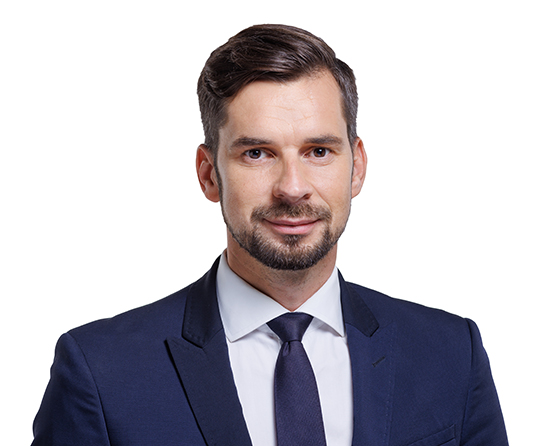
AI Profiling: Maido Ruusmann
Agenda items: 9
260/260 profiling (100.0%)
Total Speeches: 14
Analysis Period: 2024-01-18 - 2025-09-24
Political Position
The core and consistent tenet of the politician's platform is the reduction of regional disparity across Estonia, particularly in the Southeast, a challenge consistently framed in both economic and security terms. His views are strongly policy- and results-driven, emphasizing the need for comprehensive solutions, including increasing the autonomy of local governments and directing targeted special programs and investments toward lagging border regions. Over time, the focus has broadened to include robust support for infrastructure (including Rail Baltic), which is deemed a critical mechanism for equitable economic revitalization and the lifeblood of regional development. The politician criticizes the central government's actions regarding regional policy and demands improved performance.
Topic Expertise
The politician's expertise has consistently centered on regional policy and economic inequality, systematically linking these issues to demographic trends, infrastructure development, and the autonomy of local municipalities. He/She demonstrates profound knowledge, regularly employing specific terminology, detailed statistical data, and referencing concrete projects (e.g., Rail Baltic, 2+2 roads). This expertise is underpinned by a strong evidence base and reliance on authoritative institutions (the Bank of Estonia, the Foresight Centre, the OECD). Particularly noteworthy is the ability to directly correlate regional stagnation with security and geopolitical risks.
Rhetorical Style
The politician's rhetorical style is consistently formal, official, and respectful within the context of the Riigikogu, utilizing polite titles and forms of address. Although the tone is often one of concern and urgency, particularly regarding regional inequality (Southeastern Estonia), it is always balanced by strong, logical, and fact-based argumentation. The speaker primarily presents their positions in an interrogative manner, seeking clarification and constructive solutions, while emphasizing the importance of political frameworks and infrastructure.
Activity Patterns
The politician's activity pattern is irregular, typically concentrating around the periods of Riigikogu sessions, during which he engages in short but intensive bursts of activity (for example, consecutive days in June). This work encompasses both government scrutiny (asking questions) and deeper legislative efforts, with a consistent focus on economic, tax, and regional policy issues. Over time, a clear evolution has been noted, moving from shorter interventions to longer presentations that incorporate regional policy analysis, alongside an increase in international engagement (such as the OECD meeting in Warsaw).
Opposition Stance
The politician’s opposition is primarily aimed at the inefficiency of the central government’s regional policy and investments, stressing the necessity of mitigating inequality in Southeast Estonia. The criticism is consistently policy-based and structural, avoiding personal attacks, and focuses on seeking solutions rather than assigning blame. Although there was direct procedural criticism directed at EKRE and accusations of a lack of knowledge leveled at the opposition during the car tax debate, the dominant stance remains constructive, demanding comprehensive steps from the government and the channeling of EU funds towards border regions.
Collaboration Style
The politician's cooperation style is consistently respectful, constructive, and solution-oriented, manifesting in an active search for dialogue both between ministries and through the involvement of experts and multi-level governance (the Riigikogu, local authorities). He seeks broad-based solutions, posing direct questions to ministers and requesting opinions regarding specific reforms. Although he is ready for political dialogue and finding compromises (including in the face of budgetary constraints), he simultaneously demonstrates strong intra-coalition loyalty, defending the policies agreed upon in the coalition agreement against the opposition.
Regional Focus
The politician’s regional focus is consistently and exclusively aimed at reducing domestic regional disparities within Estonia, emphasizing the need to support peripheral areas and ensure more balanced economic growth outside the major growth hubs. A central and recurring theme is the economic and social condition of Southeast Estonia, which is framed as the country’s least prosperous region, characterized by low wages and significant out-migration. The politician strongly identifies himself as a "rural liberal" deeply connected to Southeast Estonia, and he calls for targeted investments, including in infrastructure (roads, commuter transport) and the development of geopolitically significant border regions.
Economic Views
The politician’s economic views are consistently aimed at reducing regional inequality and ensuring the even distribution of economic growth. To achieve this, they support active state intervention and the targeted redistribution of wealth to address the issue of low wages. Growth is primarily encouraged through infrastructure investments. At the same time, structural changes are deemed necessary to mitigate inequality, such as reforming the distribution of EU subsidies, and there is support for greater tax-setting autonomy for local governments. While acknowledging domestic budgetary constraints, solutions are sought through new EU funding periods, demonstrating a pragmatic readiness to support targeted taxes (e.g., a car tax) provided they are directly linked to necessary investments.
Social Issues
The politician's social issues platform focuses exclusively on regional inequality and its direct consequences, such as the exodus of the population from peripheral areas, demographic decline, and educational disparity. These social concerns are consistently framed as the result of economic and regional policy failure, emphasizing low wages and uneven economic distribution, and are also linked to security matters. Solutions emphasized include educational mobility, the availability of quality housing, and the development of connectivity, as well as tax relief for families with children. Traditional social topics, such as abortion, LGBTQ+ rights, or immigration, are absent from the platform.
Legislative Focus
The politician's legislative focus has been consistently directed toward strengthening regional policy and reducing domestic inequality, with a specific concentration on creating special programs for Southeast Estonia and border regions. He operates as an active initiator, seeking solutions to stimulate investment outside major growth centers and reforming the system for distributing European Union support funds to channel financial resources into economically weaker areas. Beyond regional development, key priorities include increasing the autonomy of local governments in structuring their revenue base, and supporting improvements in the accessibility of infrastructure projects (including road construction) and housing, all while safeguarding investments mandated by coalition agreements.